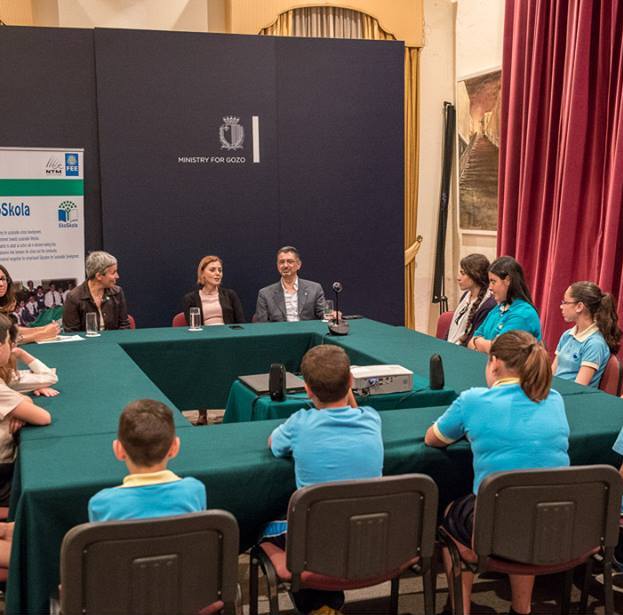The Eco-Schools programme was launched in 1994 by the Foundation for Environmental Education (FEE) and now includes over 43,000 schools distributed around the world.
Eco-Schools aims at mobilizing the whole school to empower students to adopt an active role in environmental decision-making and action in their school and in their community. Schools that have successfully achieved this goal are awarded a Green Flag – a prestigious eco-label testifying the school’s commitment to fostering sustainable lifestyles.



EkoSkola seeks to develop environmental responsibility by adopting a whole school approach in the design, implementation and monitoring of a School Environmental Policy that is intimately integrated into the School’s Development Plan. The ultimate goal is to infuse, through deliberate choices, sustainable lifestyles into the school’s day-to-day functioning so that this environmental ethic gradually becomes an integral part of the school’s ethos. When a school gives evidence that it has achieved this goal, it is awarded the EkoSkola award – the Green Flag.
EkoSkola participation is on a voluntary basis so it attracts those who are really interested in it. At school, the students participate in healthy discussions on how to make the world around us a better place. The team then work on a plan of action and work on the actions throughout the scholastic year. It is only when students take action that the EkoSkola experience leave an impact on their way of thinking and behaving. These discussions and experiences are an opportunity for internalisation of values and it brings about a culture of eco-conscious as we call it; where the students consciously and unconsciously think about the impact on the environment during their daily actions. This culture then spills over to their immediate family and beyond, generating a wave of eco-consciousness.
EkoSkola provides the students with competences such as public speaking, leadership, teamwork, decision making skills, evaluative skills and autonomy, all leading to a critical consciousness through the practice of healthy discussions.
Pupil empowerment is cited as one of the main benefits in EkoSkola since they are voluntarily committing towards empowerment and striving to improve oneself and their surroundings.
An eco-code is established together as a group and this represents what the school’s EkoSkola group have come up with as a strategy for the whole school to focus on.